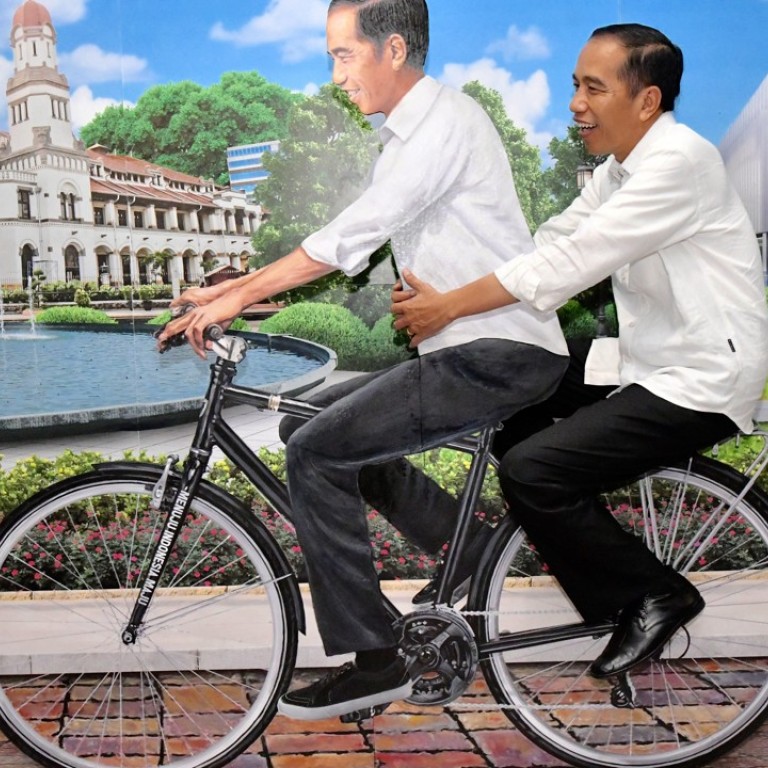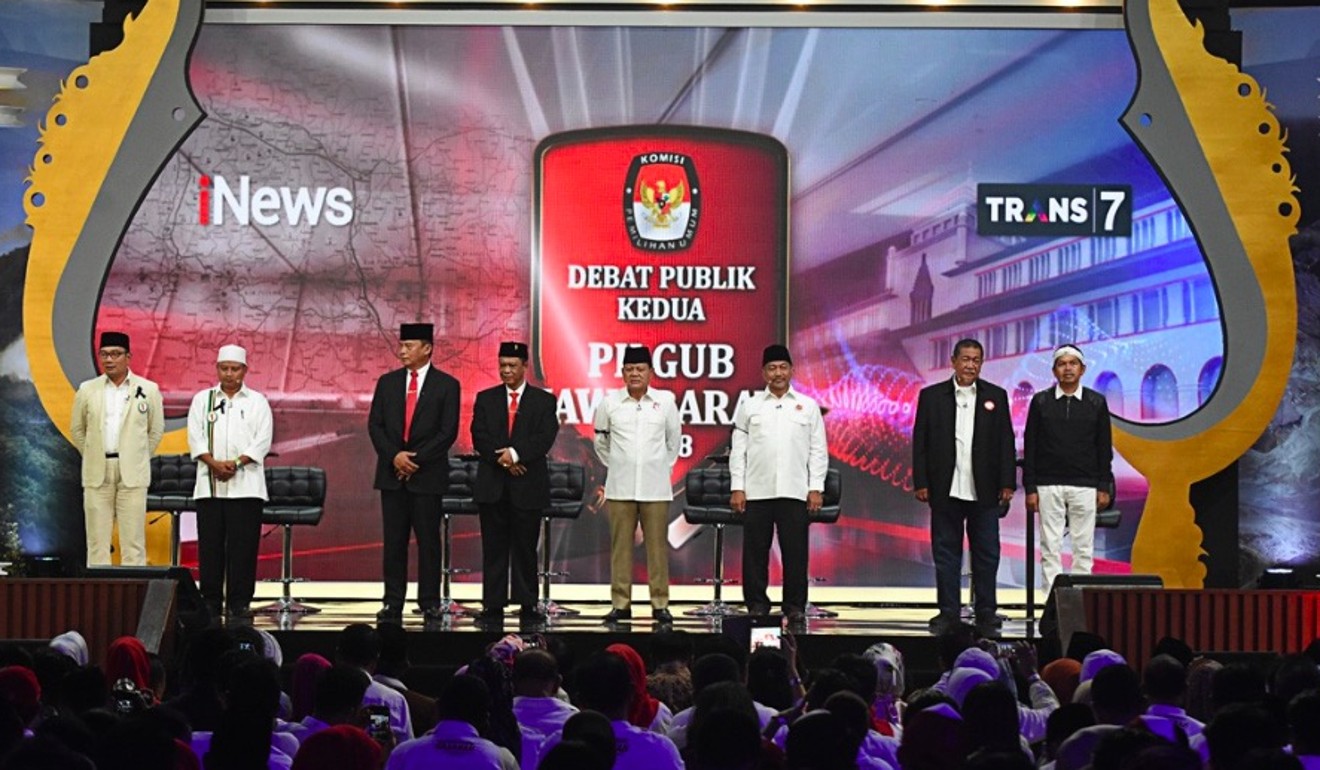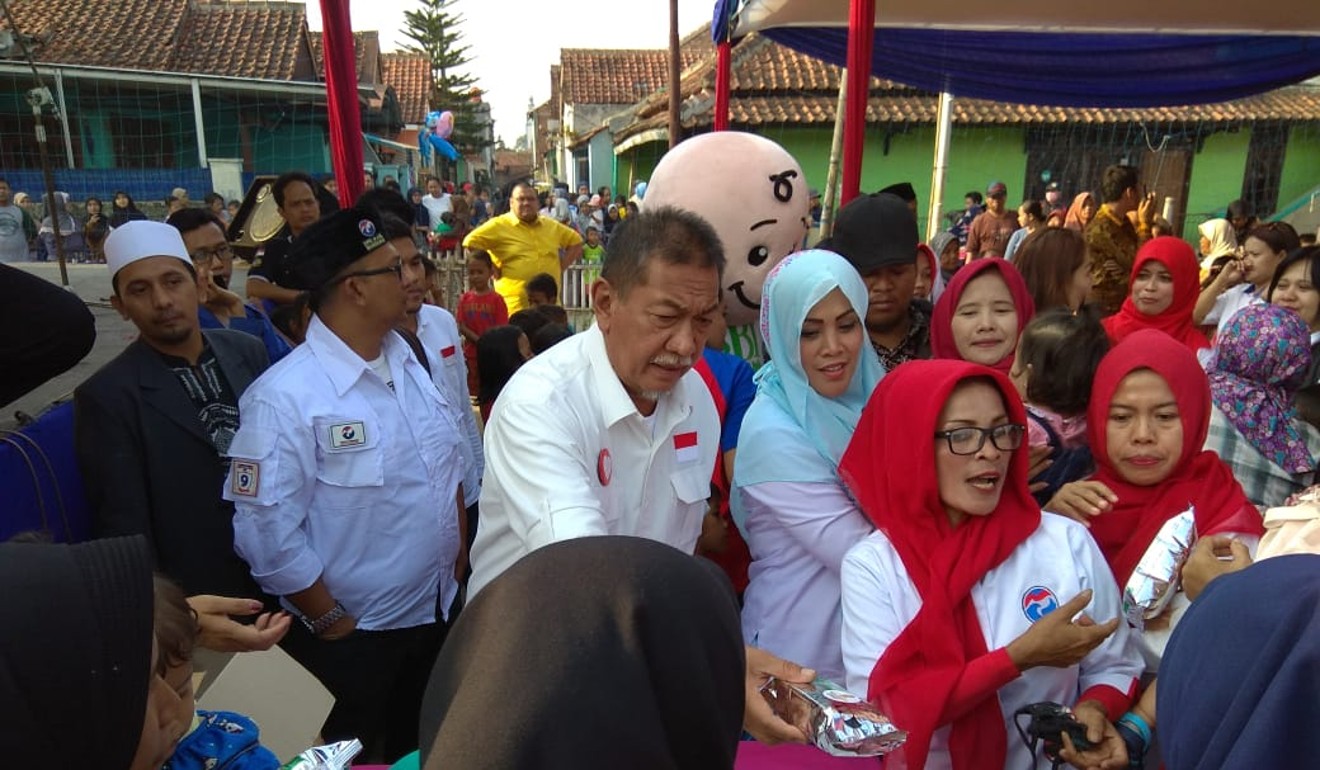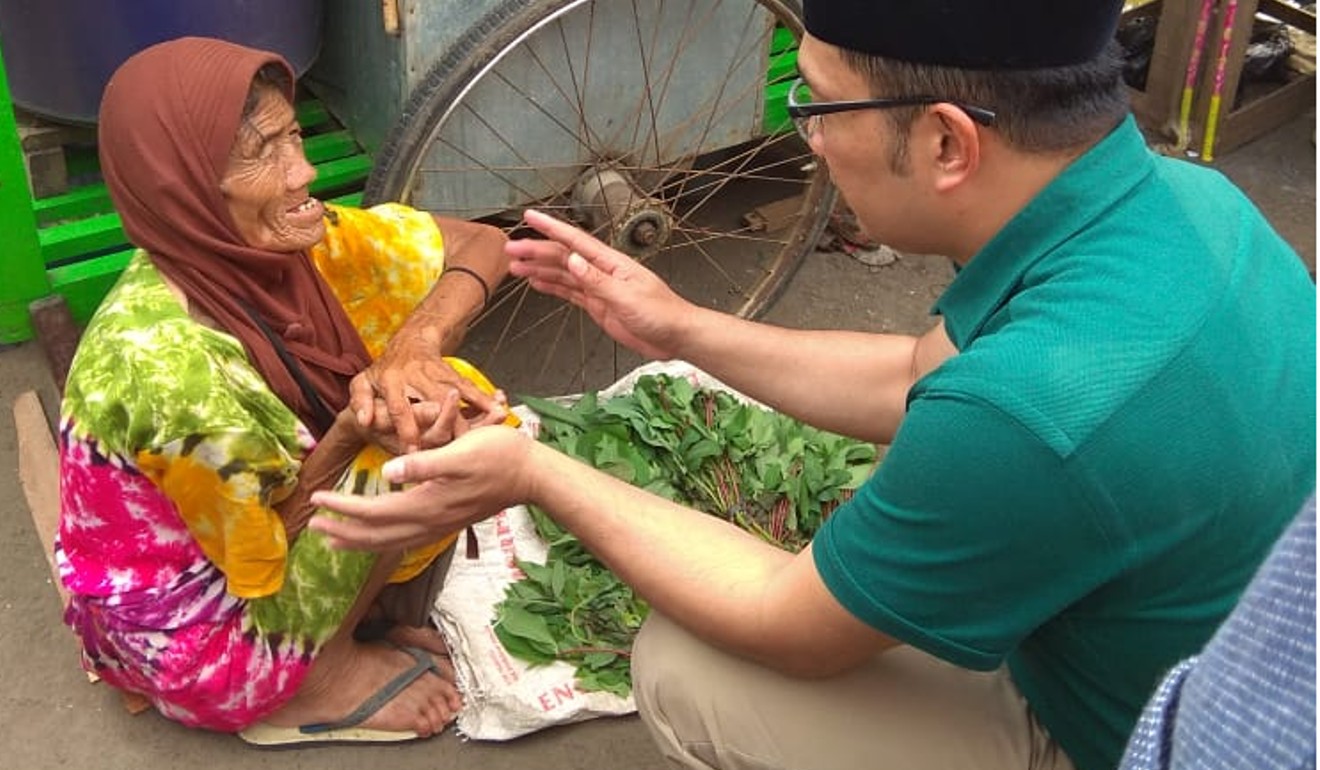
Will Joko Widodo’s campaigning pay off in West Java election, a bellwether of Indonesia’s voters?
There is no doubt that Wednesday’s regional elections will act as an indicator of presidential polls early next year – and whether President Joko Widodo’s efforts to engage the province will bear fruit
On Wednesday, the Indonesian province of West Java – with a population of 48 million – (crammed into an area smaller than the Netherlands, the former colonial power) will be going to the polls.
Its gubernatorial contest is part of a nationwide round of provincial, district and city elections that will involve more than half of the republic’s population of 265 million (that’s 152 million voters).
Back in 2014, when President Joko “Jokowi” Widodo was the outsider, he lost the province to his challenger, former special forces, or Kopassus, general and Suharto’s son-in-law, Prabowo Subianto by a staggering 19 per cent margin.
Is Widodo just paying pre-election lip service to human rights?
In the years since his inauguration, Jokowi has devoted time and energy to West Java – visiting it more than any part of the republic, including his home province of Central Java.

West Java is the home of the Sundanese people, who are quite distinct from the majority Javanese. Long a hotbed of Islamic conservatism, with its proud history, has never been particularly fond of the former mayor of Solo.
Isn’t it time Indonesia blew its fuse over bomb hoaxes?
And yet despite its relatively small size, it encompasses a wide range of contrasting districts from the inland cities of Garut and Tasikmalaya deep in the interior to the volcano-ringed provincial capital of Bandung with its elegant Dutch modernist architecture.
But perhaps the most densely populated and industrialised parts of the province are the sprawling and dormitory suburbs of Bekasi, Bogor and Depok that surround Jakarta.
Infrastructure development has been a hallmark of the Jokowi administration and West Java has been a major beneficiary of this push.
There are new toll roads, rail links, ports and airports, including the recently opened Kertajati International Airport, Patimban deep seaport and LRT lines linking the capital of Jakarta with Bogor, Depok and Bekasi.
Unsurprisingly, this time around Prabowo’s political party, Gerindra, does not seem quite so well-positioned ahead of the provincial polls.

The ticket backed by the party and its conservative Islamist ally, PKS, former major general Sudrajat and Ahmad Syaikhu, have struggled to make headway. At the moment, they are lagging well behind the two front-runners: Ridwan Kamil and Uu Ruzhanul, and Deddy Mizwar and Dedi Mulyadi, both of which enjoy considerable public appeal.
Ridwan, 46, the mayor of Bandung, is a UC Berkeley-educated architect whose environmental concerns match the contemporary mood.
The Indonesian villagers who live with their dead
His closest rival Deddy, the deputy governor of West Java and a popular actor as well as a film director, is a well-known figure across the province. While he didn’t perform quite as well in the televised debate as the telegenic Ridwan, Deddy remains a formidable candidate.
However, not all the regional elections (called pilkada) are quite so heated. The contest in Central Java is one-sided with the incumbent Ganjar Pranowo from Megawati Soekarnoputri’s PDI-P looking to sweep back into power.

Still, with the presidential polls early next year, there’s no doubt that these local elections will act as an indicator of the contest to follow.
For example, in a recent survey of West Java, pollster Indikator Politik Indonesia reported that in a two-way contest against Prabowo, 50 per cent of voters would re-elect Jokowi while 39 per cent support the former general.
It would appear that the tables have turned, at least in West Java, and that the incumbent has built up a substantial advantage – so much so that a loss for the PDI-P-backed Hasanuddin-Anton Charliyan ticket in the gubernatorial races there would not really hurt Jokowi’s chances for re-election.
Indonesia’s reformed economy can’t quash inequality
As with anything else in Indonesian politics, it is interests and personalities that matter, not so much parties.
Of course, this being Indonesia, the world’s third-largest democracy spread across thousands of islands, one would be foolish to rule out a sudden reversal.
Nonetheless, if you want to get a sense of where the republic is heading politically: keep an eye on West Java.

